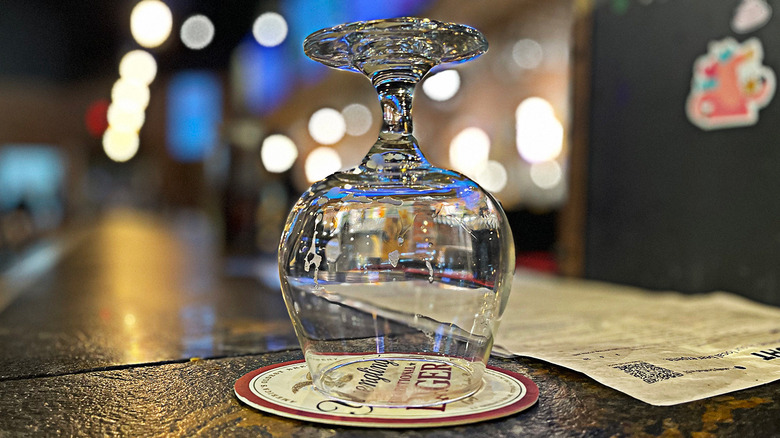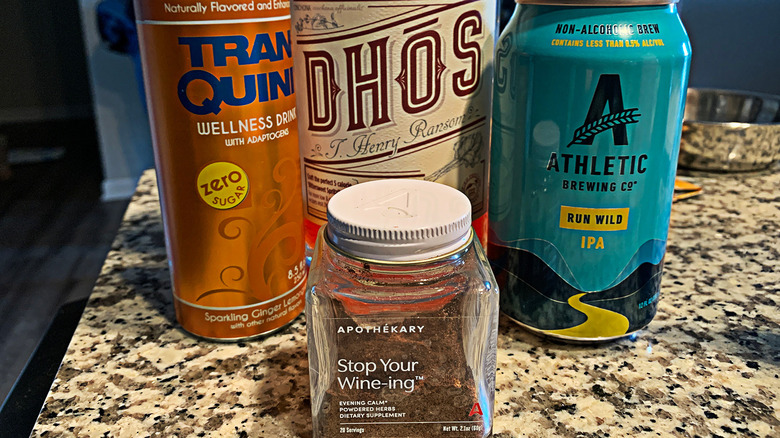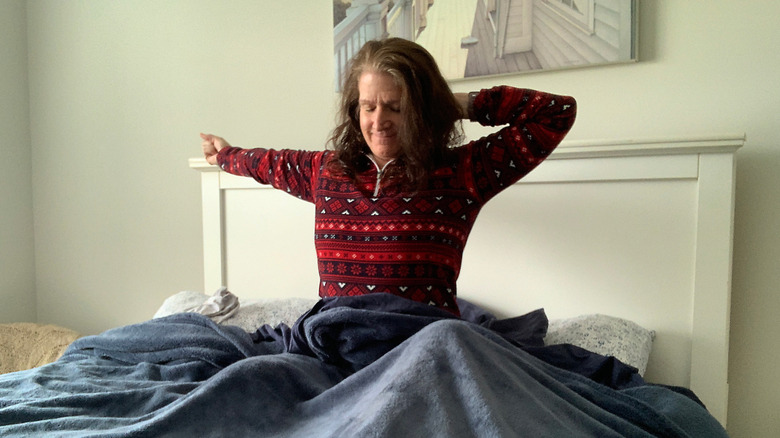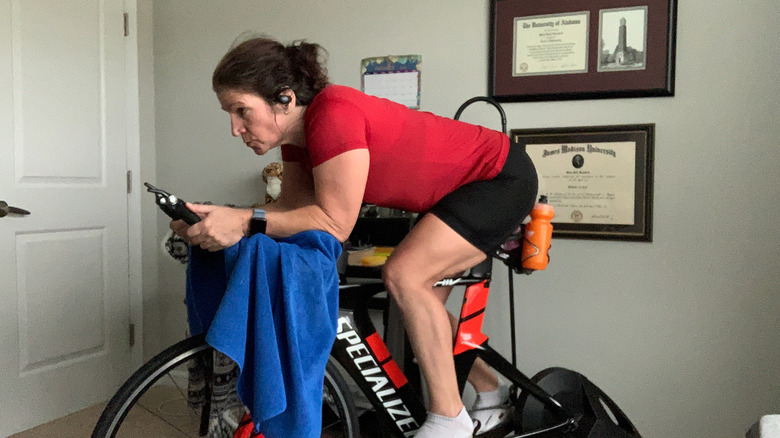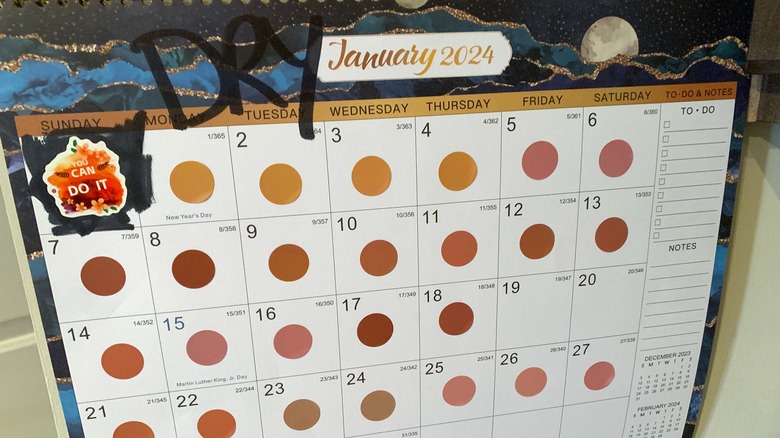We Tried Doing Dry January This Year And Here's How It Went
When the year-end holiday season brings festive gatherings and excess, it's no secret that it can take a toll on your health. That's why many of us vow to turn things around come New Year's Day, when we resolve to do something to improve our lives. Rather than adopting a New Year's resolution, many people choose something more short-term, such as a Dry January.
If you're not familiar with the term, it's resolving to refrain from drinking for all 31 days in January. It's a way to hold yourself accountable for a behavior while cleaning up your liver from the overindulgence of alcohol during the holidays. As more people are becoming aware of mindful drinking and sober curious movements, Dry January gives people a chance to try out what it's like to be alcohol-free and see how it affects their mental and physical health. Here at Health Digest, we figured we'd give Dry January a try.
Trying alcohol-free options
A Dry January must be easier these days compared to years past, with the wide variety of alcohol-free and alcohol-removed choices on the market. Some powdered products offer similar polyphenols to red wine and add adaptogens like motherwort and jujube date to relieve stress and induce calm. Although these were gross on their own and didn't mix well with hot liquids, we enjoyed them in hot cider (while continually stirring) to warm us on a winter's night.
We absolutely loved the flavored seltzers that had green tea extract, chamomile, and lemon balm as a late-evening nightcap. We felt it had the effects of a glass of wine without the acid reflux or the colored teeth. We also loved the non-alcoholic IPAs, finding the same bitter, citrusy taste as our favorite alcohol-based brands. They also had a third of the calories of a regular IPA.
We weren't fans of alcohol-free spirits. We loved the taste with some seltzer, and they reminded us of cocktails you might find at a bar. However, we noticed that they were low in calories because they used artificial sugars. Of course, we also tried the Sleepy Girl Mocktail for a few nights, although other drinks were better at helping us sleep.
Dry January improved our sleep
You might have noticed this yourself, but if you drink alcohol just before bed, it might help you sleep... at first. Then you might have noticed waking up with your heart racing or sweating. We didn't miss this at all during our Dry January, nor did we miss waking up dehydrated or nauseated.
We got a little more sleep during our Dry January, mostly because we went to bed a little earlier in January compared to December. What was notable was that our sleep wasn't as disrupted during our Dry January as our "wet" December. Almost 10% of our sleep was interrupted in December, but less than 5% of our total sleep was disrupted in Dry January. We used an app to measure our sleep score to measure our quality of sleep. Our sleep quality score shot up 19% during our Dry January.
We also saw a whopping change in our heart rate variability while we slept. Heart rate variability measures the variation in time between heartbeats. A higher heart rate variability is good because it means you're more relaxed and resilient to stress. December's average heart rate variability while we slept was 57, but it shot up to 75 in January. We assumed that our bodies were no longer trying to fight the alcohol in our system. Those alcohol-free adaptogens might also have helped.
How Dry January affected our waking life
You might have heard other people raving about how much energy they had once they gave up alcohol, but we didn't notice a difference. We had hoped that we would see big gains in our bike or running fitness, but we didn't. Although people have reported losing weight after their Dry January, we were bummed that we didn't see any significant changes in our weight.
In the past, we had problems with congestion and migraines, but we noticed less congestion and no migraines when we gave up alcohol. However, our Dry January wasn't completely perfect; we had a single drink on two consecutive days. On those days, our migraines returned. It made us wonder whether alcohol might have been contributing to our migraines and congestion in the past.
Because we know that alcohol affects the heart, we wondered if we'd see a change in our resting heart rate. After all, a lower resting heart rate means your heart doesn't have to work as hard to pump blood through your body. December's resting heart rate was 48 beats per minute on average, but Dry January made it drop to 45, which is a 6% drop after a month without alcohol.
What our Dry January taught us
When we decided to stop drinking alcohol for a month, we often wondered if we would be able to resist the temptation of having a glass of wine at dinner or a beer while watching the Ravens game. Settling for our alcohol-free options wasn't too hard of a compromise, so we'll be turning to those a little more often.
Even though our Dry January wasn't perfectly dry, we realized that it was less about earning a badge and more about learning the way alcohol affects our health and our lifestyle. Having the commitment to a Dry January meant we limited ourselves to a single drink rather than abandoning the commitment altogether.
Dry January had us reevaluate our relationship with alcohol, and we saw that we didn't need a drink every night like we thought we did. Rather than wait until next January or do a Sober October, we decided that we'd limit our drinking to rare occasions and keep enjoying the health benefits of remaining sober.

